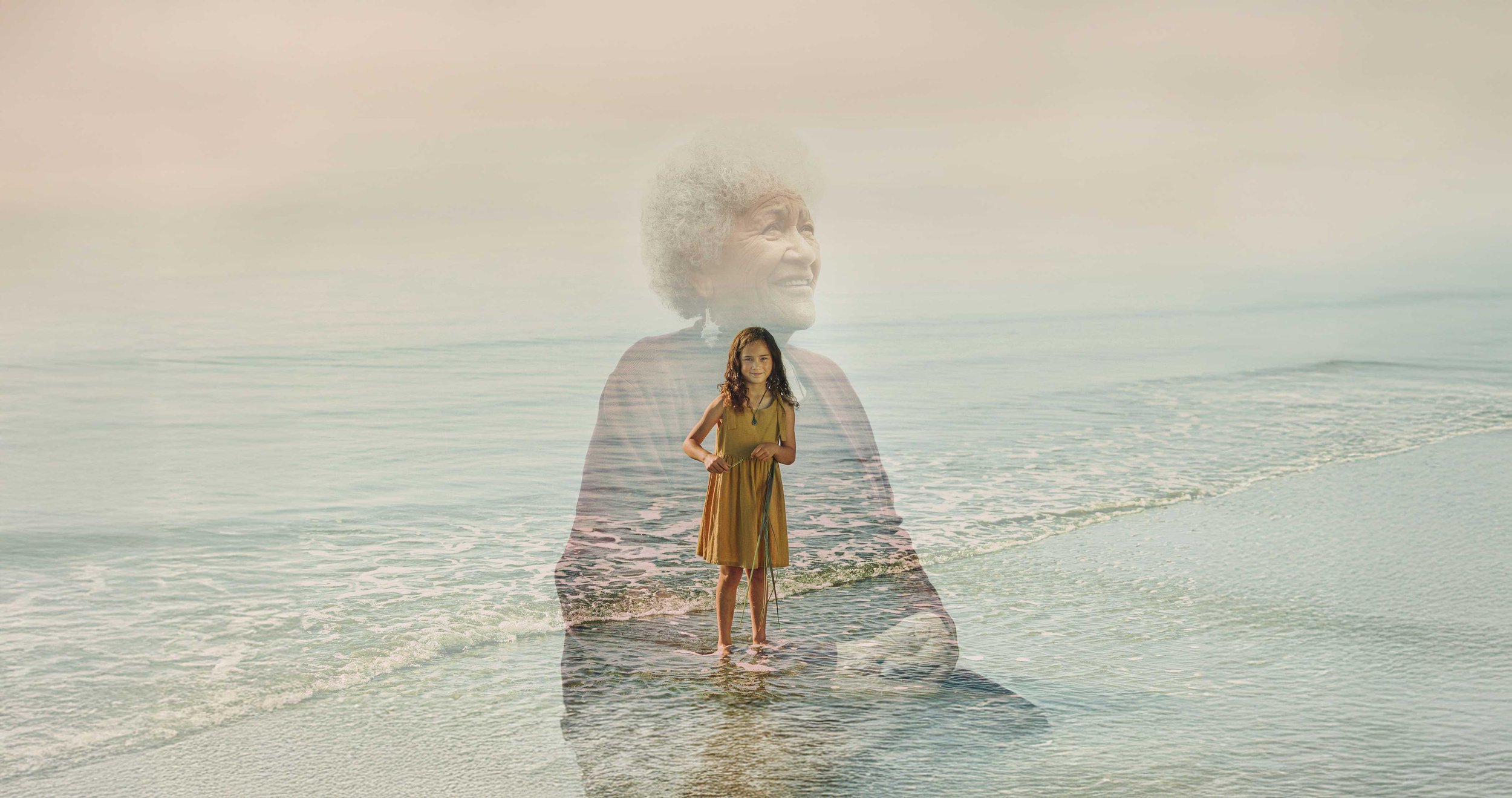
Nurture the
future within
Keep pregnancy alcohol-free
Keep pregnancy alcohol-free
We are all future ancestors
In Aotearoa New Zealand, generations of people see drinking alcohol as a normal part of life. However, alcohol can have long-term harmful effects on the health and wellbeing of ourselves, our whānau and our children.
That’s why it’s important that we all work together to support healthy, alcohol-free pregnancies to prevent the life-long impacts of Fetal Alcohol Spectrum Disorder (FASD).
Join the movement to nurture the future within. Let’s work together to protect future generations and create a healthier, more inclusive Aotearoa New Zealand.
What feeds me
FASD is preventable
Everything we consume during pregnancy affects the baby.
When we drink alcohol, the alcohol in our blood cells can pass through the placenta from a mother to her child. The range of effects caused by alcohol exposure before birth is called Fetal Alcohol Spectrum Disorder (FASD).
FASD is a diagnostic term for a neurodevelopmental disorder caused by any exposure to alcohol before birth. The main effects from this exposure are to the brain but alcohol can also affect other parts of the body.
People who have FASD can experience complex physical, behavioural, learning and intellectual problems that persist throughout their lives. Impairment also varies between people depending on when and how much alcohol was consumed during the development of their brain and other parts of their bodies before they were born.
feeds you too
Although FASD is preventable, many pregnancies are unplanned and damage from alcohol exposure may happen before a woman knows she is pregnant and stops drinking alcohol.
If planning a pregnancy, the best advice is to stop drinking alcohol in advance. If you’re not planning to get pregnant, contraception can help prevent exposure to alcohol. Find more information at protectedandproud.nz .
Health NZ and the Ministry of Health advise to stop drinking alcohol if you could be pregnant, are pregnant or are trying to get pregnant.
There is no known safe level of alcohol consumption during pregnancy.

Nurture the
future within
Keep pregnancy alcohol-free
We all have a role to play
to keep pregnancy
alcohol-free
Minimising the harm that alcohol causes is an important step towards growing a healthy and equitable society in Aotearoa New Zealand, for current and future generations.
To help protect future generations, the best thing we can all do is provide a safe, supportive environment, whether we know that someone is hapū (pregnant) or not.
If there is a chance you might be pregnant, it’s important not to drink alcohol.
Loved ones can support in simple ways too.
Try not to pressure anyone into drinking alcohol
Support people’s choice not to drink - we don’t need to ask why
Find other ways to socialise and have fun together - especially if you know that someone is hapū
We can also work with our community to advocate for wider changes in how we access alcohol, and keep challenging our drinking culture in Aotearoa New Zealand.
Find out more about the sort of action you can take to nurture the future within and reduce the harm caused by alcohol in your community at resources.alcohol.org.nz
Poipoia te kākano, kia puāwai
The more we share this important message the greater the impact. Your support in reaching our communities is important and we ask that you help to share this campaign across your social networks.
If you’re working in the community with whānau, who are or might be hapū (pregnant), you can use the downloadable assets linked below to share how important it is to keep pregnancy alcohol-free.
Nurture the seed so it will bloom

A small seed of
what was to become
This campaign seeks to create education around alcohol use during pregnancy to support positive action.
We know that any preventative approach must be situated within the wider context of Aotearoa New Zealand, and within the specific context of hauora (wellness).
Therefore, the seed of this campaign has been grown from time spent listening to and connecting with hapori (community) to more deeply understand whānau experiences, perspectives and beliefs about alcohol use during pregnancy.
We acknowledge the contributions of the Māori Coalition on Te Iho Tātai-ā-Rongo, FASD-CAN, Kookiri ki Taamakimakaurau Trust, and Alcohol Healthwatch in reviewing and supporting the development of the FASD campaign.
At the heart of this mahi is our powerful group of co-designers. They are called Te Kapa Manawa.
In te reo Māori, the word ‘kapa’ refers to a group or team. ‘Manawa’ means heart. When these two words are combined, together they create new meaning. ‘Te kapa manawa’ means heartbeat.
One of the first sounds we are exposed to before birth is the heartbeat of our māmā (mothers). Te Kapa Manawa refers to this essential connection between māmā and pēpi (babies); a sound before any other sound.
This diverse group of rangatahi represent a unifying collective rhythm that connect to the voices, experiences and needs of whānau and those living with FASD.
Meet Te Kapa Manawa
Brought to you by
Health NZ - Te Whatu Ora are responsible for improving services and outcomes across Aotearoa New Zealand’s health system – through local, district, regional, and national level functions.
Health NZ is part of The FASD Cross-Agency Governance Group who provide strategic oversight and governance to support a collaborative cross-agency approach to implementing the FASD Strategic Action Plan.
This plan includes a package of initiatives aimed at understanding the prevalence of FASD, promoting better education and supporting women to stay alcohol-free during pregnancy.
This campaign is a key part of the several new FASD actions for 2024-25. Learn more about these initiatives at Fetal Alcohol Spectrum Disorder – Health New Zealand | Te Whatu Ora .
Please also visit Programmes and initiatives | Ministry of Health NZ for updates on the refresh of the FASD Strategic Action Plan and other Ministry of Health FASD resources.
Need help
with your drinking?
Visit Alcohol & Drug Help
Free call the helpline
0800 787 797
Free text
8681
Find advice on how to talk to someone about their drinking
alcohol.org.nz





